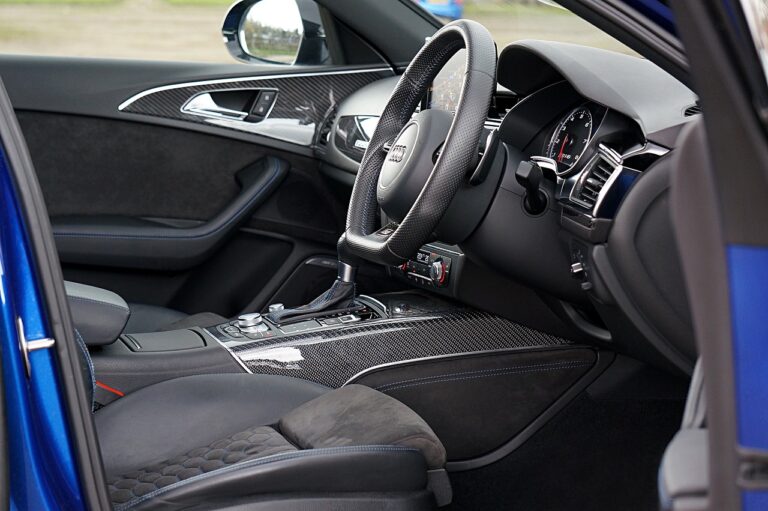The Impact of 5G Technology on Automotive Software: Faster Connectivity and Communication
allexch login app, 99 exch, all panel login:The Impact of 5G Technology on Automotive Software: Faster Connectivity and Communication
In today’s digital age, technology continues to advance at a rapid pace, changing the way we live, work, and interact with the world around us. One of the most anticipated technological advancements in recent years is the rollout of 5G technology. With promises of faster speeds, lower latency, and increased connectivity, 5G has the potential to revolutionize various industries, including automotive software.
With the automotive industry increasingly relying on software for various functions, such as infotainment systems, navigation, driver assistance, and autonomous driving features, the arrival of 5G is set to transform the way vehicles communicate with each other, with infrastructure, and with the internet. In this article, we will explore the impact of 5G technology on automotive software and how it will enhance connectivity and communication in vehicles.
1. Faster Data Transfer Speeds
One of the most significant advantages of 5G technology is its faster data transfer speeds. Compared to 4G LTE, 5G is expected to deliver speeds up to 100 times faster, enabling real-time data processing and communication between vehicles and infrastructure. This means that software applications in vehicles can operate more efficiently, providing instant updates and information to drivers.
2. Improved Network Reliability
With its low latency capabilities, 5G technology offers improved network reliability, ensuring that data can be transmitted quickly and accurately. This is crucial for applications such as autonomous driving, where split-second decisions need to be made based on real-time data. By reducing latency, 5G technology can enhance the safety and efficiency of automotive software.
3. Enhanced Vehicle-to-Everything (V2X) Communication
5G technology will enable vehicles to communicate with each other, with infrastructure, and with other devices in the environment through Vehicle-to-Everything (V2X) communication. This communication network will allow vehicles to share information about road conditions, traffic, weather, and more, enabling them to make informed decisions while on the road.
4. Augmented Reality (AR) Navigation
With faster connectivity and communication capabilities, 5G technology can support advanced features such as Augmented Reality (AR) navigation systems in vehicles. By superimposing digital information onto the real-world environment, AR navigation can provide drivers with enhanced guidance and information, improving their overall driving experience.
5. Over-the-Air (OTA) Software Updates
5G technology will also enable Over-the-Air (OTA) software updates for vehicles, allowing manufacturers to remotely update and enhance the software in vehicles. This means that bugs can be fixed, new features can be added, and security vulnerabilities can be patched without the need for a physical visit to the dealership. OTA updates will help keep vehicles up to date and ensure optimal performance.
6. Enhanced Cybersecurity
As vehicles become more connected and reliant on software, the risk of cyber-attacks also increases. 5G technology can play a crucial role in enhancing cybersecurity in vehicles by enabling secure and encrypted communications between devices. With its advanced security features, 5G can help protect vehicles from unauthorized access and data breaches.
Conclusion
Overall, the impact of 5G technology on automotive software is poised to be transformative. With faster connectivity, improved communication, and enhanced capabilities, 5G will enable vehicles to operate more efficiently, safely, and intelligently. As automotive manufacturers continue to leverage 5G technology in their vehicles, we can expect to see a new era of connected and intelligent transportation systems.
FAQs
1. How will 5G technology impact autonomous driving?
5G technology will enable faster communication and data processing for autonomous driving systems, allowing vehicles to make split-second decisions based on real-time information. This will enhance the safety and efficiency of autonomous vehicles on the road.
2. Will 5G technology be available in all vehicles?
While 5G technology is set to be widely adopted in the automotive industry, not all vehicles may have 5G connectivity immediately. It will depend on the vehicle manufacturer’s implementation and rollout of 5G technology in their vehicles.
3. How will 5G technology improve the driver’s experience?
5G technology will enhance the driver’s experience by enabling faster connectivity, advanced navigation systems, over-the-air software updates, and improved communication between vehicles. These features will make driving more convenient, enjoyable, and safe for drivers.
4. What are the security implications of 5G technology in vehicles?
While 5G technology offers advanced security features, it also brings new cybersecurity challenges for vehicles. Manufacturers will need to implement robust security measures to protect vehicles from potential cyber-attacks and data breaches.







